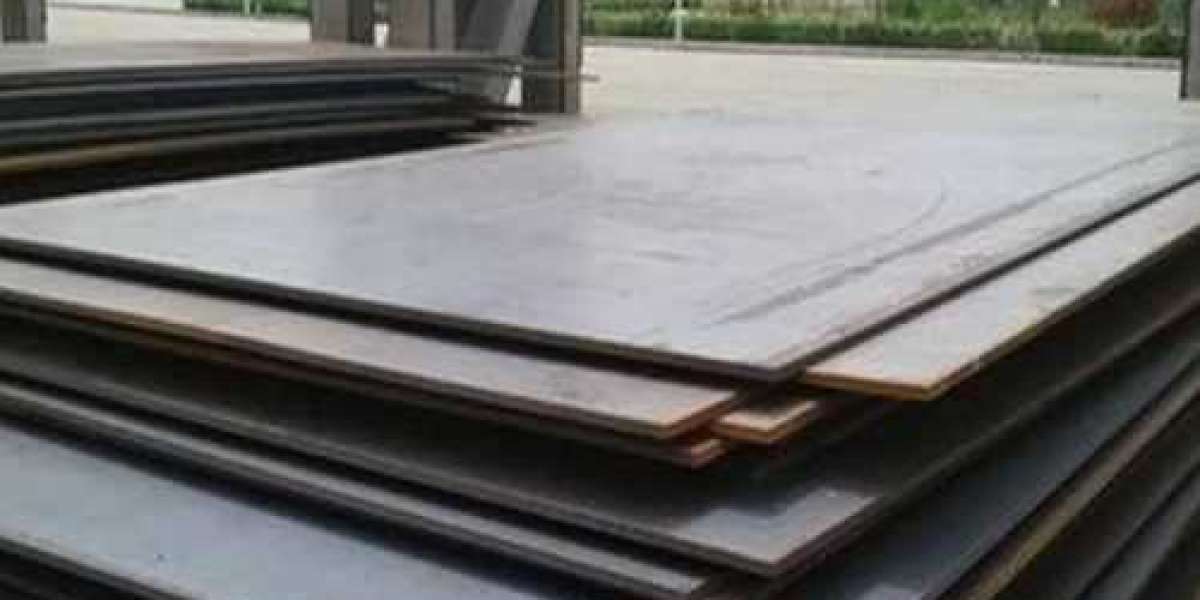Aluminium alloy plates are an essential material used in various industries, known for their unique combination of strength, lightweight, and corrosion resistance. These versatile materials are crucial for applications ranging from aerospace to automotive, construction, and even packaging. In this comprehensive guide, we will explore the types, properties, and uses of aluminium alloy plates, shedding light on why they are favored in so many different sectors.
What Are Aluminium Alloy Plates?
Aluminium alloy plates are large, flat metal sheets that are created by combining aluminium with other elements such as copper, magnesium, manganese, and zinc. These added metals enhance the natural properties of aluminium, resulting in stronger, more durable, and more versatile materials. Aluminium alloy plates come in various thicknesses, sizes, and grades, offering flexibility for a wide range of applications.
Unlike pure aluminium, which is soft and lacks strength, the alloying elements in these plates provide a stronger, more robust material that retains the lightness and corrosion resistance of pure aluminium. This makes them an ideal choice for demanding applications where weight savings, durability, and resistance to corrosion are critical.
Types of Aluminium Alloy Plates
Aluminium alloy plates are categorized into different series, each with distinct properties. The series are based on the main alloying element in the composition, and each series is designed for specific uses. Let's look at the major types of aluminium alloy plates:
1000 Series – Pure Aluminium Alloys
The 1000 series alloys are primarily made of 99% pure aluminium. These alloys are known for their excellent corrosion resistance, high thermal and electrical conductivity, and ease of fabrication. However, they lack the strength of other alloys, which limits their use in structural applications. Common uses include electrical conductors, heat exchangers, and food packaging.2000 Series – Aluminium-Copper Alloys
The 2000 series alloys are alloyed with copper and are known for their high strength, making them ideal for structural applications. They are commonly used in aerospace applications, including aircraft wings and fuselages, where strength is essential. However, these alloys have reduced corrosion resistance and are usually used in controlled environments.3000 Series – Aluminium-Manganese Alloys
The 3000 series alloys are alloyed with manganese, offering good corrosion resistance and moderate strength. These alloys are often used in roofing, siding, and cooking utensils. The 3000 series is also known for its excellent formability and ease of fabrication.5000 Series – Aluminium-Magnesium Alloys
The 5000 series alloys are highly resistant to corrosion, particularly in marine environments, thanks to the addition of magnesium. These alloys are widely used in the marine and transportation industries. Boat hulls, ship components, and marine infrastructure rely on the 5000 series for durability and strength.6000 Series – Aluminium-Magnesium-Silicon Alloys
Combining magnesium and silicon, the 6000 series offers a good balance of strength, corrosion resistance, and workability. This series is widely used in the construction industry for structural components, architectural frames, and piping systems. The 6000 series is also popular in the manufacturing of window frames, door frames, and other architectural elements.7000 Series – Aluminium-Zinc Alloys
The 7000 series alloys are the strongest of all aluminium alloys, thanks to the addition of zinc. These alloys are used in high-strength applications like aerospace, military, and sporting equipment. They offer superior strength-to-weight ratios but are less resistant to corrosion, making them suitable for controlled environments.
Key Properties of Aluminium Alloy Plates
Aluminium alloy plates possess several important properties that make them the material of choice for various industries. These include:
Light Weight:
Aluminium alloys are much lighter than other metals like steel or titanium, making them ideal for applications where weight reduction is crucial, such as in aerospace and automotive industries.Strength-to-Weight Ratio:
The strength of aluminium alloys varies depending on the alloy series. The 7000 series, for example, offers exceptional strength, while the 1000 series focuses more on flexibility and corrosion resistance. This flexibility in strength makes aluminium alloys versatile for a range of applications.Corrosion Resistance:
Aluminium naturally forms a thin oxide layer when exposed to air, protecting the metal from further corrosion. This makes aluminium alloys highly resistant to rust, which is essential in industries like marine, construction, and aerospace.Thermal and Electrical Conductivity:
Aluminium alloys are excellent conductors of heat and electricity. This property is highly valued in industries such as electrical engineering and manufacturing, where heat dissipation or electrical conduction is required.Formability and Workability:
Aluminium alloys are easy to work with, making them suitable for a variety of manufacturing processes, including welding, cutting, and bending. The alloys can be formed into various shapes and sizes, offering flexibility in design and production.Recyclability:
Aluminium is one of the most recyclable materials. The recycling process requires only a fraction of the energy needed to produce new aluminium, making aluminium alloys a sustainable choice for industries seeking to minimize their environmental impact.
Applications of Aluminium Alloy Plates
The properties of aluminium alloy plates make them highly versatile and widely used across many industries. Here are some of the key applications:
Aerospace:
The aerospace industry uses aluminium alloys extensively for aircraft and spacecraft components. These alloys are prized for their strength-to-weight ratio, which is critical in minimizing fuel consumption while maintaining the integrity of structural components. Aircraft bodies, wings, and engine parts are typically made from 2000 and 7000 series aluminium alloys.Automotive:
Aluminium alloy plates are also used in the automotive industry to reduce the overall weight of vehicles, improving fuel efficiency and performance. Components such as engine blocks, transmission parts, and structural elements are often made from the 5000 and 6000 series alloys.Marine:
The 5000 series alloys, with their exceptional resistance to corrosion, are widely used in the marine industry. Boat hulls, ship components, and offshore platforms are often constructed using these alloys, as they can withstand the harsh conditions of saltwater environments.Construction:
Aluminium alloys are commonly used in the construction industry for applications such as building facades, roofing materials, window frames, and structural supports. The 6000 series alloys are especially popular due to their balance of strength and workability.Packaging:
The 1000 series alloys are frequently used in the packaging industry, particularly for aluminium foil, cans, and packaging materials. These alloys offer excellent corrosion resistance and formability, making them ideal for food and beverage packaging.Electronics:
Aluminium alloys are used in the electronics industry for components like heat sinks, enclosures, and other parts that require efficient heat dissipation. Their excellent thermal conductivity helps maintain the temperature stability of electronic devices.
Benefits of Aluminium Alloy Plates
The advantages of using aluminium alloy plates are numerous, making them a preferred choice for a wide range of applications:
Durability and Longevity:
Aluminium alloys are incredibly durable and resistant to corrosion, which means they last longer and require less maintenance than other materials.Cost-Effective:
While aluminium alloys are often more expensive than other materials, their durability, low weight, and recyclability make them a cost-effective solution in the long run.Sustainability:
Aluminium is one of the most recycled metals in the world, and using recycled aluminium reduces energy consumption and environmental impact, making it an eco-friendly choice for businesses.Versatility in Design:
Aluminium alloy plates are highly versatile, offering a wide range of options for manufacturers to tailor their products to specific requirements. This flexibility in design makes them suitable for everything from simple consumer products to complex industrial components.
Conclusion
Aluminium alloy plates are essential materials in a wide range of industries, providing a perfect balance of strength, lightweight properties, and corrosion resistance. Whether in aerospace, automotive, marine, or construction, aluminium alloys offer numerous advantages that make them the material of choice for demanding applications. By understanding the types, properties, and applications of these alloys, businesses can make informed decisions that maximize the efficiency, performance, and sustainability of their projects.








